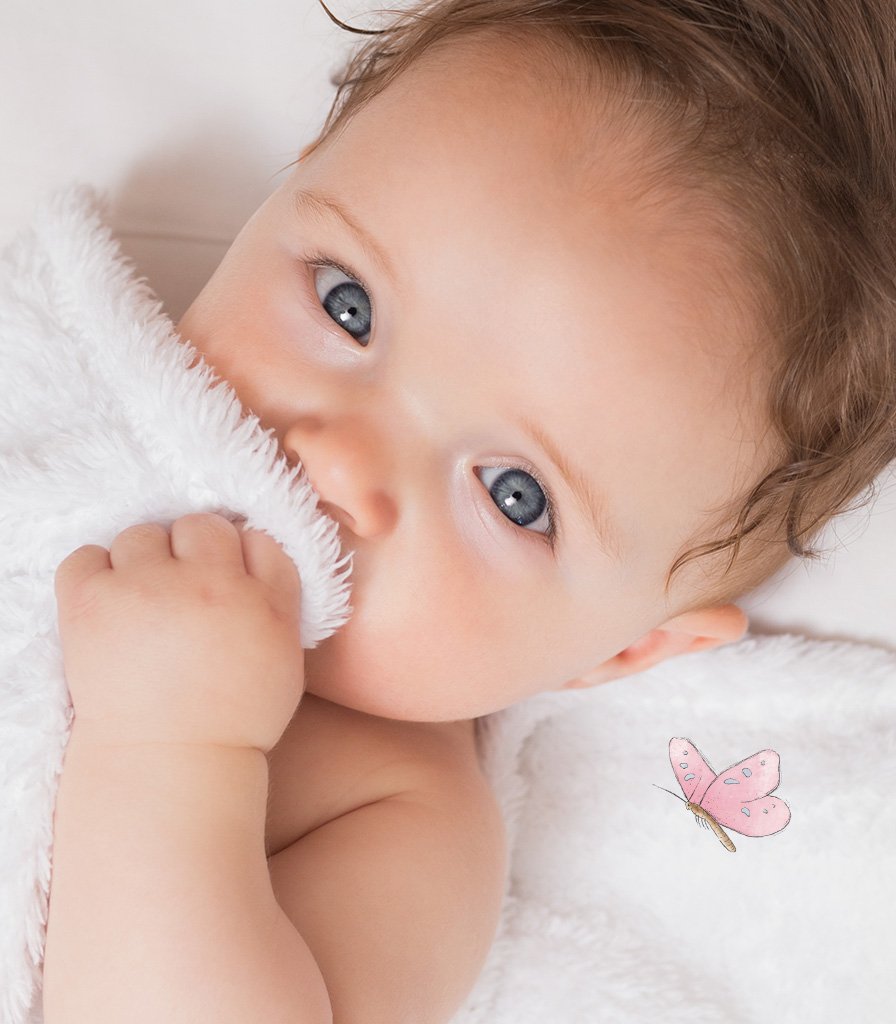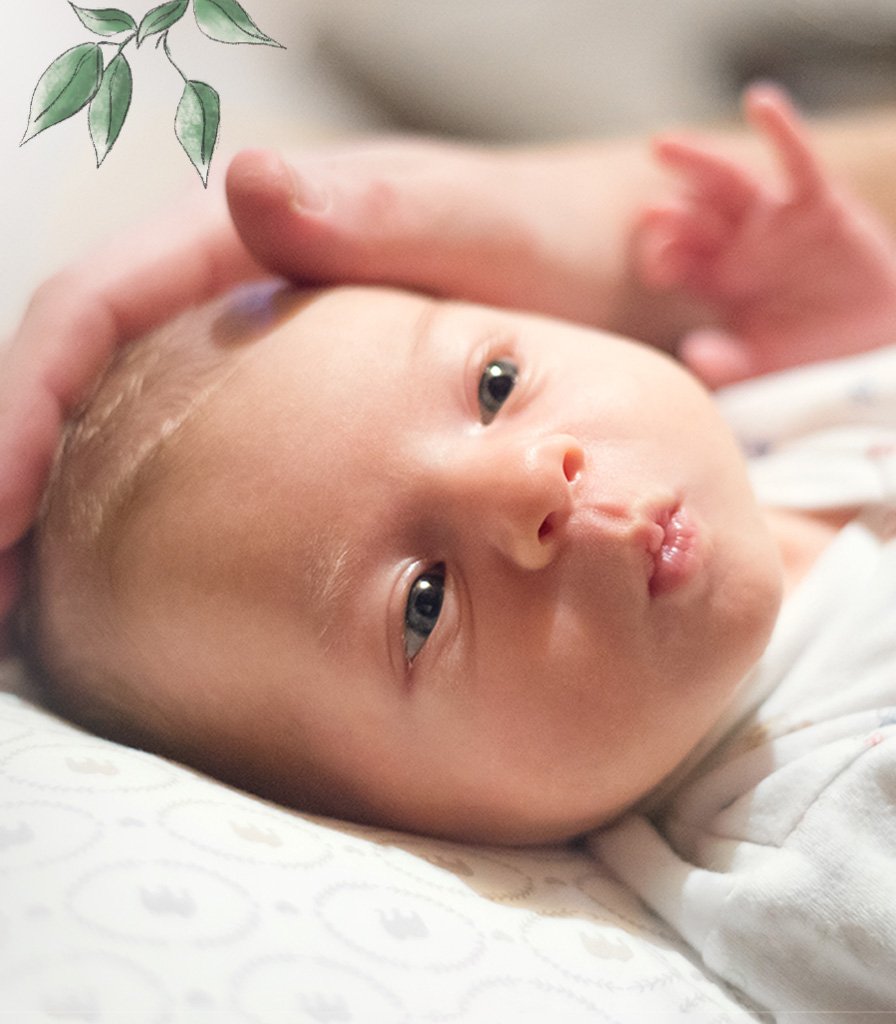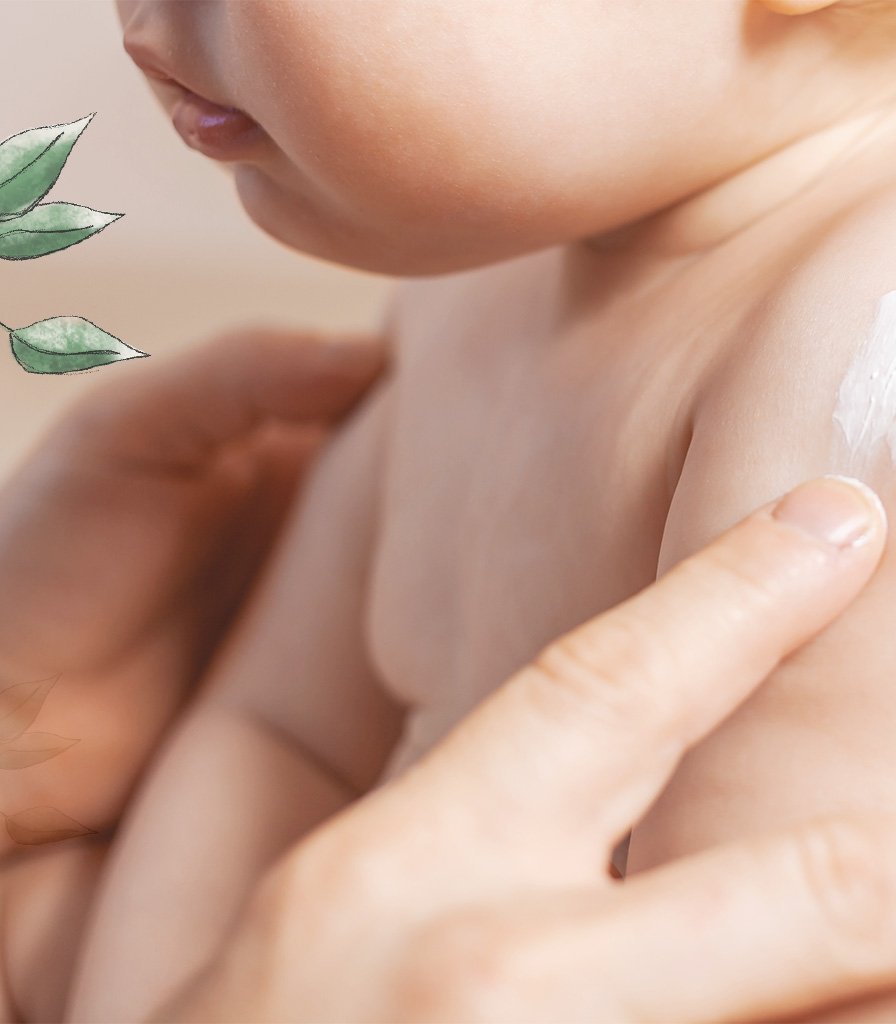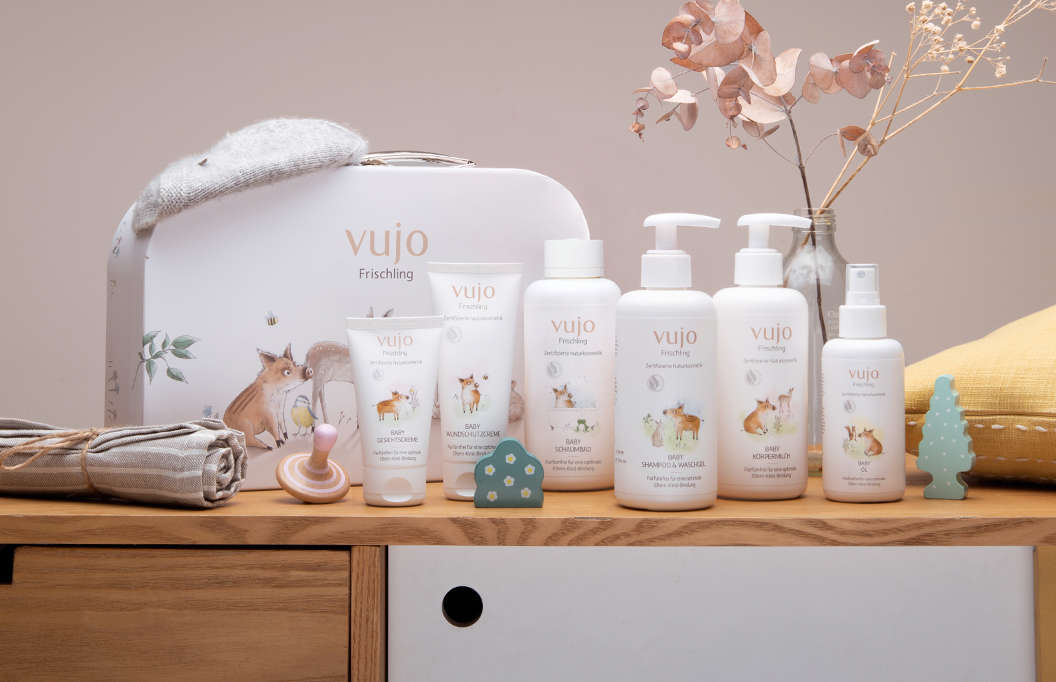Baby skin - what it really needs
Your baby's skin needs a lot of love, attention and care because it is not yet fully mature. The development of the skin's protective barrier continues at least until the fourth year of life.1, 2 Proper skin care from infancy onwards can have a positive influence on the skin's barrier function. In contrast, impaired skin barrier function in the first years of life can lead to atopic 3 skin diseases and allergy-related clinical pictures.4
Therefore, dermatologists recommend that baby care products ...
... are mild and specially adapted to the sensitive skin of babies.
... are free from perfume.
... are free from alcohol (ethanol).
... are dermatologically tested for compatibility for sensitive skin.
... are pH neutral to help build the natural skin barrier.
... are free from mineral oils, palm oil, synthetic fragrances, silicones, parabens, extracts, PEGs and microplastics.
... contain few, high-quality ingredients, preferably of organic origin.
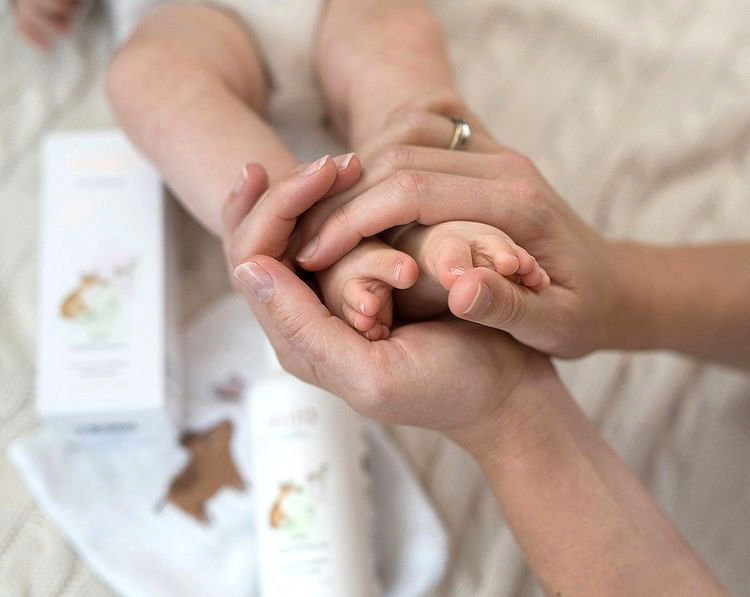
Baby skin needs special care
Optimal baby care provides your baby's skin with sufficient moisture. Baby skin should be moisturised regularly, especially if it appears dry. Studies have shown that regular application of cream from the time a baby is a newborn onwards does not interfere with the maturation of the skin, but stabilises the skin barrier and even helps to prevent neurodermatitis and allergies.
Creams and lotions should be easy to spread and should be applied more frequently rather than too thickly. It is important that baby care is odorless so that your baby's natural scent is not masked - a very important factor for parent-child bonding. Caution is advised with additives containing chamomile and calendula: From a dermatological point of view, these are not recommended, as they can cause contact allergies.
Learn more about ….
Baby Essentials Set
Everything you need for the tender care of your baby, you will find in our vujo Frischling Baby Essentials Set - from baby oil to baby nappy cream.
You might also like this

1. Nikolovski J et al. (2008), J Invest Dermatol; 128:1728–1736
2. Stamatas GN et al. (2010), Ped Dermatol; 27(2):125–131
3. Eine atopische Dermatitis (häufig als Ekzem bezeichnet) ist eine chronische, juckende Entzündung der oberen Hautschichten
4. Oord van den R et al. (2009), BMJ; 339:b2433
5. HAUT 2019;30(6):280-281



